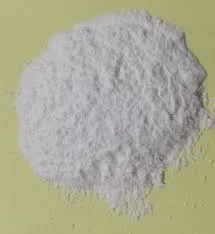- Afrikaans
- Albanian
- Amharic
- Arabic
- Armenian
- Azerbaijani
- Basque
- Belarusian
- Bengali
- Bosnian
- Bulgarian
- Catalan
- Cebuano
- Corsican
- Croatian
- Czech
- Danish
- Dutch
- English
- Esperanto
- Estonian
- Finnish
- French
- Frisian
- Galician
- Georgian
- German
- Greek
- Gujarati
- Haitian Creole
- hausa
- hawaiian
- Hebrew
- Hindi
- Miao
- Hungarian
- Icelandic
- igbo
- Indonesian
- irish
- Italian
- Japanese
- Javanese
- Kannada
- kazakh
- Khmer
- Rwandese
- Korean
- Kurdish
- Kyrgyz
- Lao
- Latin
- Latvian
- Lithuanian
- Luxembourgish
- Macedonian
- Malgashi
- Malay
- Malayalam
- Maltese
- Maori
- Marathi
- Mongolian
- Myanmar
- Nepali
- Norwegian
- Norwegian
- Occitan
- Pashto
- Persian
- Polish
- Portuguese
- Punjabi
- Romanian
- Russian
- Samoan
- Scottish Gaelic
- Serbian
- Sesotho
- Shona
- Sindhi
- Sinhala
- Slovak
- Slovenian
- Somali
- Spanish
- Sundanese
- Swahili
- Swedish
- Tagalog
- Tajik
- Tamil
- Tatar
- Telugu
- Thai
- Turkish
- Turkmen
- Ukrainian
- Urdu
- Uighur
- Uzbek
- Vietnamese
- Welsh
- Bantu
- Yiddish
- Yoruba
- Zulu
nov . 29, 2024 12:40 Back to list
Administering Injectable Ivermectin Safely to Horses for Effective Parasite Control
Can You Give Injectable Ivermectin to Horses?
Ivermectin is an antiparasitic medication widely used in veterinary medicine, particularly in the treatment of various parasitic infections in horses. While it is most commonly administered in the form of a paste or oral solution, the question arises can injectables be used instead? This article delves into the use of injectable ivermectin, its appropriate applications, and considerations to keep in mind when treating horses.
What is Ivermectin?
Ivermectin is a member of the avermectin family of drugs and is primarily effective against a variety of internal and external parasites. These include roundworms, bots, lice, and certain types of mites. Its widespread use in equine treatment is due to its efficacy and relatively safe profile when used as directed. However, the administration method can significantly affect the absorption and effectiveness of the drug.
Injectable Formulations
Though ivermectin is available in injectable formulations, it’s important to note that not all formulations are intended for horses. Injectable ivermectin has been mainly developed for use in large animals like cattle and swine. In practice, the injectable form of the drug is rarely used in horses. The standard practice for treating equines is to use oral doses, such as pastes or gels, formulated specifically for horse use.
Why Prefer Oral Administration?
There are several reasons why oral ivermectin is preferred over injectables for horses
can you give injectable ivermectin to horses

1. Safety Equine-specific formulations have been extensively studied for safety and efficacy in horses. Injectable ivermectin lacks comprehensive studies regarding its safety profile in equines.
2. Dosing Accuracy Oral formulations allow for easier and more accurate dosing. Horses can be dosed according to weight, and the risk of improper injection techniques causing complications is eliminated.
3. Cost and Availability Oral ivermectin is generally more cost-effective and readily available compared to its injectable counterparts. Horse owners can easily find the equine version at local veterinary supplies or feed stores.
4. Convenience Administering paste or oral solutions can often be less stressful for both the animal and the caretaker compared to injections, which may require restraint and can cause discomfort.
When Injectable Ivermectin Might Be Considered
In specialized cases where a horse cannot consume oral medications due to health issues or other reasons, a veterinarian might consider using an injectable formulation. However, this would likely be an off-label use, and it is crucial to consult a veterinarian before proceeding. They will assess the horse’s health condition and decide the best course of action, considering both the risks and benefits.
Conclusion
In summary, while injectable ivermectin is an option available in veterinary practices, it is not the standard approach for treating horses. Oral formulations of ivermectin remain the preferred and safest choice. If you are a horse owner considering antiparasitic treatment, it is best to consult with your veterinarian to ensure you choose the most effective and safe method for your horse’s health needs. Always remember that thorough veterinary guidance is essential when dealing with medications, especially in ensuring the correct administration and avoiding potential complications.
-
Guide to Oxytetracycline Injection
NewsMar.27,2025
-
Guide to Colistin Sulphate
NewsMar.27,2025
-
Gentamicin Sulfate: Uses, Price, And Key Information
NewsMar.27,2025
-
Enrofloxacin Injection: Uses, Price, And Supplier Information
NewsMar.27,2025
-
Dexamethasone Sodium Phosphate Injection: Uses, Price, And Key Information
NewsMar.27,2025
-
Albendazole Tablet: Uses, Dosage, Cost, And Key Information
NewsMar.27,2025













